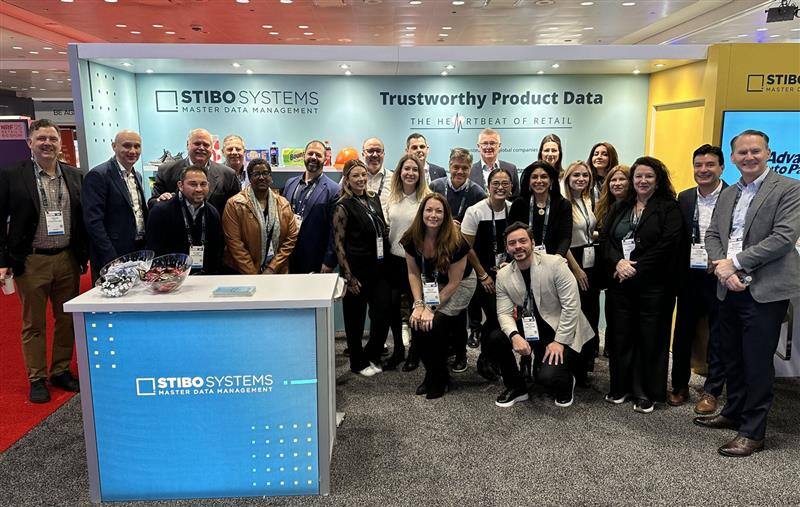Salesforce’s acquisition of Informatica represents more than a change of ownership — it marks a fundamental shift in direction for the entire organization. For companies who rely on Product 360 for their product information management (PIM) strategy, this introduces new questions around roadmap direction, product prioritization and long-term investment.
Following an acquisition of this scale, organizations naturally begin to watch for early signs that changes may be on the horizon:
-
Slower product roadmap updates and reduced visibility into long-term development plans
-
Support and account team restructuring following organizational changes
-
New complexities emerging in licensing and contract conversations
Individually, these signals may seem manageable. But together, they’re strong indicators that organizations should have a Plan B ready.
Questions your leadership team should be asking
While some organizations may benefit from a deeper Salesforce integration, others could find themselves increasingly constrained by potential platform dependencies they never signed up for.
Integration projects of this scale typically take anywhere from 18 to 36 months, but the timeline to find a new solution is growing short. So, what will happen to Product 360 during this transition? Will it be prioritized or put on hold?
Here are the questions your IT and product teams should be asking right now:
Technical preparedness
- What’s our exit strategy if Product 360’s integration capabilities or product direction change?
- How dependent are we on Informatica-specific features (for example, PowerCenter mappings, legacy systems connectors or proprietary data workflows)?
- Which data sources, datasets and data volumes depend on Product 360’s pipelines or ETL processes?
- What’s the cost and timeline of migrating to a new solution, and will it support cloud-based or on-premises deployments?
- How will we maintain data quality, metadata lineage and data governance during a transition?
Business continuity
- Who are our key Informatica contacts, and how likely are they to stay for the long term?
- Can we maintain vendor neutrality and multi-cloud connectivity (AWS, Azure, Snowflake) under Salesforce’s ownership?
- Do we rely on pre-built connectors that may shift toward Salesforce-first integrations?
- How quickly can we pivot if needed without disrupting real-time data flows or customer-facing dashboards?
Strategic planning
- Does this acquisition align with our long-term architecture strategy?
- Which technology partnerships (Microsoft, Oracle, SAP, IBM) or data warehouses (Snowflake, SQL Server) are at risk if roadmap priorities change?
- What capabilities or functionality might we gain or lose in the process — for example, ease of use, low-code options, user-friendly user interfaces and/or support for diverse use cases?
- What contract or pricing model changes will affect the total cost of ownership over the next 3–5 years?
Now is the time to formulate your Plan B
While Salesforce is unlikely to sunset Product 360, it’s unclear how the new ownership will impact future development over the long term. This is the time to reassess your product data strategy and map out a Plan B on your terms.
To get started as soon as possible, follow this checklist:
- Audit current Product 360 dependencies and integration points: You should be evaluating existing data pipelines, ETL tools and integration workflows to identify potential bottlenecks or areas for improvement, with a focus on data engineering dependencies, data movement patterns and data integration tools.
- Discuss long-term data strategy with leadership: Your leadership should be engaging in conversations about the future of data governance, data mesh adoption and the role of AI in data processing.
- Explore alternative MDM/PIM solutions: Your team should be evaluating open-source platforms, cloud-native solutions and composable architectures to improve data integration and transformation capabilities.
- Engage with analysts and peers: Your leadership should be participating in discussions about data-centric security, autonomous data products and the impact of large language models on data curation practices.
- Build vendor relationships: You should be focused on establishing connections with providers and offering data integration platforms, data catalogs and real-time data processing solutions.
- Start internal gap assessments: You should start conducting evaluations of current data infrastructure, identifying areas lacking in metadata management, data quality and data observability.
How Stibo Systems PXDC stacks up to Informatica Product 360
As an Informatica Product 360 user, you know that product data management isn’t just another capability. Whether you're a retailer, ecommerce business or a CPG company, you need a best-in-class solution that supports the full product data lifecycle, from product onboarding to conversion.
Stibo Systems Product Experience Data Cloud (PXDC) is a powerful alternative to Informatica Product 360. PXDC allows you to turn your product data into a competitive advantage, delivering real results and long-term success.
For a direct comparison, here are the key features of Stibo Systems PXDC vs Informatica Product 360:
Vendor independence and multi-cloud support
- Informatica Product 360: To be integrated into Salesforce's Data Cloud platform, which may lead to potential vendor lock-in and reduced flexibility.
- Stibo Systems PXDC: Offers a cloud-native, API-first platform that supports hybrid and multi-cloud deployments to offer flexibility and independence.
Flexible integration and transformation engine
- Informatica Product 360: Provides ETL capabilities with a focus on structured data integration.
- Stibo Systems PXDC: Supports both ETL and ELT processes, handling large data volumes efficiently and offering a wide range of connectors and APIs for seamless integration across various platforms, including AI-powered enrichment and mapping to accelerate onboarding.
Strong metadata, governance and lineage
- Informatica Product 360: Offers data governance features but may require additional configurations for comprehensive lineage tracking.
- Stibo Systems PXDC: Provides built-in data governance features, including data quality rules and the ability to audit changes for better data integrity and compliance.
Robust orchestration and workflow control
- Informatica Product 360: Includes orchestration capabilities, but may require additional tools for big data or advanced workflow automation.
- Stibo Systems PXDC: Supports advanced orchestration capabilities (such as scheduling, real-time triggers, dependency graphs, monitoring, retry/alert logic and workflow automation) to make data management and process automation more efficient.
Scalable architecture and performance
- Informatica Product 360: Scalable, but may face challenges with performance as data volume and complexity increase.
- Stibo Systems PXDC: Features a microservices-based infrastructure that ensures continuous performance even with millions of records, complex workflows and simultaneous users across regions.
Transparent total cost of ownership (TCO)
- Informatica Product 360: Pricing can be complex and may lead to unexpected costs.
- Stibo Systems PXDC: Offers clear and predictable pricing models, helping organizations understand the total cost of ownership and align it with business value.
Ecosystem and skills readiness
- Informatica Product 360: Has a broad ecosystem, but a steeper learning curve that may require specialized skills.
- Stibo Systems PXDC: With a strong partner network and comprehensive training resources for non-technical users, Stibo Systems ensures your team can quickly gain the skills needed to effectively use the platform.
Stibo Systems lets you focus on what you can control
Acquisitions of this scale make change inevitable, but the real question is whether that change will serve your organization’s data strategy, and what you can do to stay in the driver’s seat. Now is the critical time to consider a Plan B and secure an end-to-end approach to handling enterprise data.
Stibo Systems PXDC is a high-performance alternative to Product 360, designed to meet your business needs. With advanced machine learning capabilities, PXDC streamlines data transformation processes, enabling efficient handling of complex data. Our SaaS solution provides scalability and flexibility to adapt to modern data needs. Transitioning to PXDC not only ensures continuity but also positions your enterprise for future growth and innovation.
Ready to take back control? To help Product 360 customers navigate this transition, we’ve created The Breakup Guide: Moving on from Informatica Product 360 — a practical roadmap covering warning signs, timelines, vendor evaluation and migration planning. Download it today!




































































































































































































